Research Team
Research Team

Robert Henry, PhD
PhD, is Métis from Prince Albert, Saskatchewan. He currently holds a Tier II Canada Research Chair in Indigenous Justice and Wellbeing, and is the nominated principal investigator and Executive Director of the nātawihowin and mamawiikikayaahk Research, Training and Mentorship Networks (SK-NEIHR). Dr. Henry’s research areas include Indigenous street gangs and gang theories, Indigenous masculinities/identities, Indigenous urban research, Indigenous and critical research methodologies, youth mental health and visual/digital research methods. Book publications include Brighter Days Ahead (2013) and Indigenous Women and Street Gangs: Survivance Narratives (2021), lead co-editor of Global Indigenous Health: Reconciling the Past, Engaging the Present, Animating the Future (2018), and co-editor of Settler City Limits: Indigenous Resurgence and Colonial Violence in the Urban Prairie West (2019), The Arts of Indigenous Health and Well-Being (2021), and Handbook of Indigenous Sociology (2022). He has also published in the areas of Indigenous masculinity, Indigenous health, youth subcultures and criminal justice. His current research focuses on the concept of survivance and its applicability within Indigenous justice, health, and wellbeing research.

Caroline Tait, PhD
Dr. Caroline Tait is a member of the Métis Nation-Saskatchewan, from MacDowall, near Batoche, and has one adult son. She has a PhD in medical anthropology from McGill, and is currently a professor in the Department of Psychiatry, University of Saskatchewan. She was the initial nominated principal investigator of the nātawihowin and mamawiikikayaahk Research, Training and Mentorship Networks (SK-NEIHR), and is the Nominated Principal Investigator and Co-Executive Director of the NEIHR National Coordinating Centre. She also led the Saskatchewan Indigenous Mentorship Network, which has folded into the SK-NEIHR. She has conducted community-based research with First Nations and Métis communities and governments for over 25 years, publishing on FASD, child welfare, mental health, and micro-reconciliation. She meets regularly with a think tank of Elders, knowledge keepers, and healthcare professionals, exploring organ donation and transplantation. Her board memberships include the Canadian Association of Elizabeth Fry Societies, Elizabeth Fry Society of Saskatchewan, First Peoples Wellness Circle, and Mental Health Research Canada.
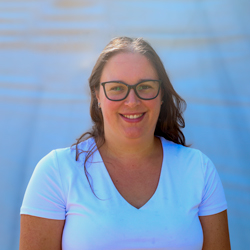
Heather Foulds, PhD
Dr. Heather Foulds, Métis, is an Associate Professor in the College of Kinesiology at the UofS. Dr. Foulds is the Early Career Chair of Indigenous Women’s Heart and Brain Health, co-funded by Heart and Stroke and CIHR. This Chair position evaluates the importance of culture and social support as mediators of health for Indigenous women. Dr. Foulds also holds research grants from SHRF and CIHR investigating health benefits of Métis dancing, including the Red River Jig. Dr. Foulds’ research program explores cardiovascular health determinants, with specific focuses on Indigenous populations and women’s cardiovascular health. Her research combines medical perspectives with physical activity and exercise healthy lifestyle and the social and cultural aspects of health in preventive approaches to cardiovascular disease.

Holly Graham, RN, PhD, R.D. Psychologist
Dr. Holly Graham is a member of the Thunderchild First Nation, SK. She has worked as a Registered Nurse (RN) in a variety of northern communities, in addition to various other health care environments since 1985. Holly is an Associate Professor in the department of Psychiatry, College of Medicine, and also has a CIHR Indigenous Research Chair in Nursing. She maintains an active practice as a Registered Doctoral Psychologist, working primarily with individuals who have experienced trauma and symptoms of posttraumatic stress disorder (PTSD). Holly's research is focused on Indigenous health, mental health, and wellness.

Carrie Lavallie, PhD
Third generation born white Settler with Scandinavian and German Ancestral ties. Dr. Carrie LaVallie is a Registered Psychiatric Nurse. With over 30 years of experience, Carrie has worked in various non-profit organizations, private practice, and with First Nation communities. They were Acting Director Health Sciences/Campus Manager at Northern Campus, First Nations University of Canada and is faculty for Indigenous Health. Carrie has a Master of Health Studies and completed a PhD in Educational Psychology. Their area of research explores the role of spirituality in relapse prevention and other areas of interest are mental health, addictions, counselling, and spirituality.

Leah Ferguson, PhD
Dr. Leah Ferguson (she/her/hers) is a citizen of the Métis Nation-Saskatchewan and an Associate Professor in the College of Kinesiology at the University of Saskatchewan. Leah’s research areas are in sport psychology and Indigenous peoples’ wellness. She is committed to community and scholarly work with Indigenous peoples, and she works with Indigenous and non-Indigenous youth, girls, women, athletes, and community members to promote flourishing. She is also a Mental Performance Consultant with the Sport Medicine and Science Council of Saskatchewan and a Professional Member of the Canadian Sport Psychology Association.
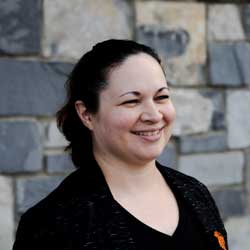
Wendie Marks, a member of the Anishinabe of Wauzhushk Onigum First Nation, is an assistant professor in the Department of Pediatrics at the University of Saskatchewan. Wendie’s proposed research involves using a Developmental Origins of Health and Disease lens to investigate obesity in Indigenous children. Stress and malnutrition have been shown to play a strong determining role in the development of metabolic disorders such as obesity. Canadian colonization policies, such as the residential school system, exposed Indigenous peoples to both chronic stress and malnutrition during important developmental periods. This exposure may have a lasting physiological impact transmitted across generations, resulting in a barrier towards wellness. Wendie will use her background in preclinical animal models to build a program of research that integrates clinical and translational research. This research will focus on the intergenerational effects of stress and malnutrition and how this relates to obesity in Indigenous children.
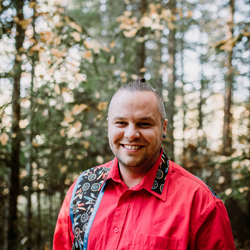
Jaris Swidrovich, PharmD, PhD(c)
Dr. Jaris Swidrovich (he/him/they/them) is an Assistant Professor, Teaching Stream, in the Leslie Dan Faculty of Pharmacy at the University of Toronto. He is a Saulteaux First Nations and Ukrainian pharmacist from Yellow Quill First Nation (Treaty 4, SK) and is the son of a 60s Scoop Survivor and grandson and great-grandson of Indian Residential School Survivors. He is the first Indigenous faculty member in pharmacy in Canada and is the founder and co-chair of the Indigenous Pharmacy Professionals of Canada (IPPC). He received his Bachelor of Science in Pharmacy from the University of Saskatchewan and a Doctor of Pharmacy degree from the University of Toronto and is currently a PhD candidate in Education at the University of Saskatchewan studying Indigenous peoples’ experiences with pharmacy education in Canada. As a Two Spirit and queer person, he is invested in 2SLGBTQ+ and Indigenous research and education, as well as service and advocacy to, for, and with communities and community-based organizations.

Stacey Lovo, BScPT, MSc, PhD
Dr. Stacey Lovo is an Assistant Professor at the School of Rehabilitation Science, University of Saskatchewan. Stacey’s research interest areas include the use of teams and virtual health technologies to facilitate access to care in rural and remote communities, collaboration with Indigenous communities to determine rehabilitation needs, and collaboration with Indigenous community and stakeholders to develop and educate health care providers and health system workers on culturally responsive care. Stacey’s research consists of mixed methodologies in both clinical and health systems access areas. Stacey teaches Professional Practice and a component of this curriculum is culturally responsive care, anti-racism and anti-oppression, as well as advocacy for healthcare in Indigenous, rural and remote communities.
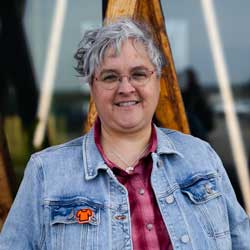
Sarah Oosman, PhD
Sarah Oosman is an Associate Professor in the School of Rehabilitation Science and a Researcher with the Saskatchewan Population Health and Evaluation Research Unit (SPHERU) at the University of Saskatchewan. She has been a physical therapist since 1998 with clinical experience in both private and public sectors nationally and internationally. Sarah has been working in northern and rural Indigenous communities in Saskatchewan for the past 12+ years. Her research interests include: community-engaged Participatory Action Research in partnership with Métis and First Nations Indigenous communities, implementing and evaluating culture-based health promoting interventions with an intergenerational and life-course focus, applying mixed methods approaches, and developing cultural humility and cultural safety practices among health care professionals and our health system.
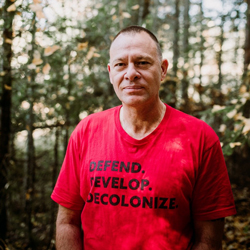
Simon Lambert, PhD
Dr. Simon Lambert is an Indigenous (Māori) researcher from Aotearoa New Zealand, a member of Tūhoe and Ngāti Ruapani mai Waikaremoana iwi (tribes) After 7 years as a faculty member in the Department of Indigenous Studies at the University of Saskatchewan, and a period as Co-Executive Director of the NEIHR National Coordinating Centre, which supports the nine NEIHR networks across Canada. Simon’s research has focused on disaster risk reduction and emergency management with Indigenous communities, and biosecurity where he is a member of Te Tira Whakamātaki. Simon is currently leading the project "Transforming Emergency Response in First Nations and Métis Communities in the times of COVID-19, through Gender and Cultural Safety", funded by TD Bank. He is currently back in New Zealand and is the inaugural Chief Science Advisor Māori for the Ministry for the Environment.

